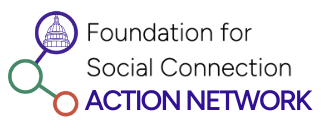By Shannon Vyvijal, Social Connection Fellow at the Foundation for Social Connection
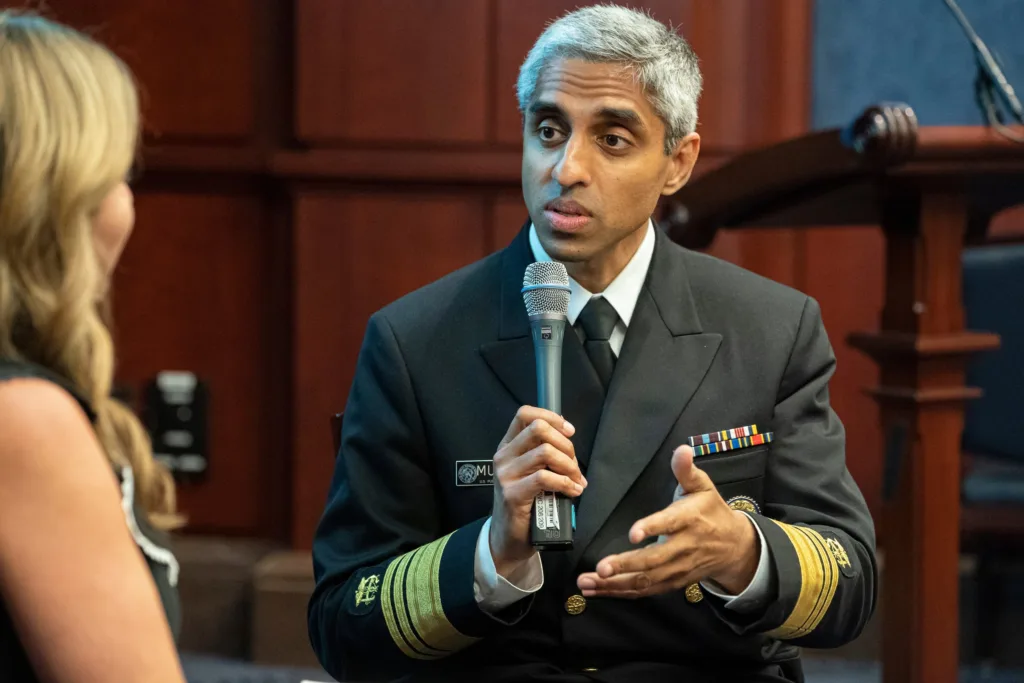
“At a cultural level, we have to say this is something we want to talk about and prioritize. We have to frame this as a need for survival. It should be as normal as hunger and thirst,”
– U.S. Surgeon General Dr. Vivek Murthy.
During his first tenure, U.S. Surgeon General Dr. Vivek Murthy went on a tour across the country to talk to Americans about their most pressing health concerns. The topic of loneliness did not come up in any of his large group discussions, nor was he expecting it to. But the quiet, one-on-one conversations he had with Americans after revealed that loneliness was a more widespread and pressing issue than he realized. Turning to the research, he found that up to two-thirds of Americans reported they suffered from loneliness. Further, the research linked loneliness with a long list of negative health impacts, ranging from mental health issues to premature death. Ultimately, he came to the same conclusion as other speakers shared during Conversations on Belonging, Connection, & Wellbeing:
Social connection is as necessary for survival as food and water.
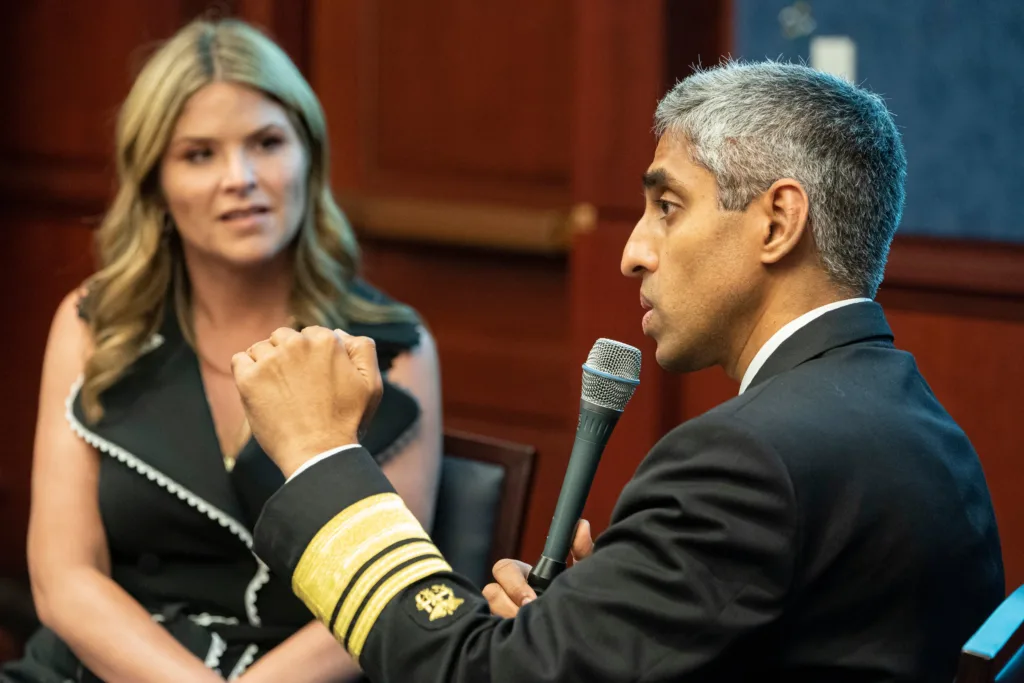
“How do we build a life and society that is truly centered around social connection?”
– U.S. Surgeon General Dr. Vivek Murthy.
One theme that appeared throughout Conversations on Belonging, Connection, & Wellbeing was the need to be creative in our efforts to address social isolation and loneliness and foster meaningful connections. In a fireside chat between Jenna Bush Hager and Dr. Murthy, they discussed how technology affects our ability to be present during social interactions and build connections. Specifically, they focused on the impact social media has on our youth populations, including increasing susceptibility to isolation and loneliness. Dr. Murthy proposed bringing technology companies into the discussion, and referenced the often unpublished, internal research that cites linkages between the usage of their platform and youth isolation and loneliness. He also emphasized turning to peer support organizations, like Beyond Differences, to build connections amongst youth groups. Ultimately, through the creation of new partnerships and collaborative efforts, we can most effectively target the nuances of this issue.
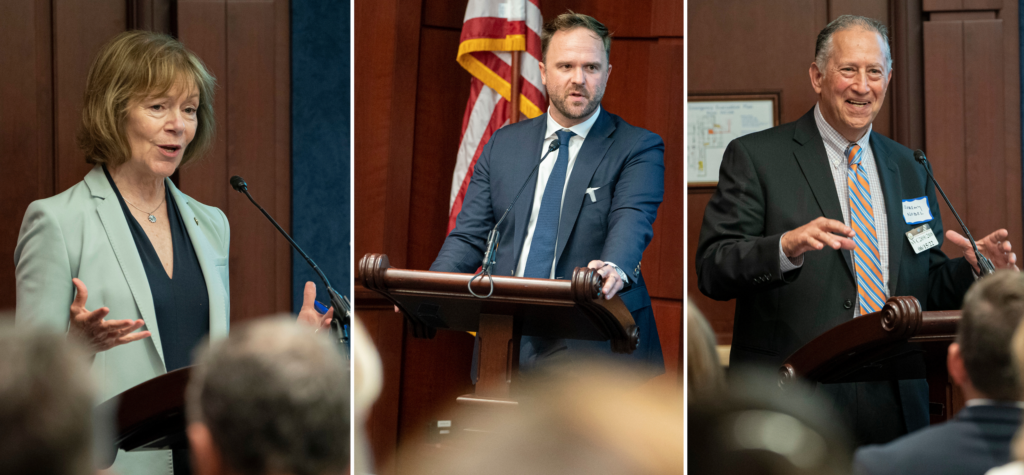
“In Washington, D.C., personal stories matter. They cut through political toxicity and allow people to come to the table and have honest and thoughtful conversations about really tough issues,”
– Andrew MacPherson, Founder and Board Chair of The Coalition to End Social Isolation
Continuing on the theme of creative solutions, other speakers proposed leveraging personal stories of social isolation and loneliness to break down stigma, open a dialogue, and urge policymakers to take action. Senator Tina Smith highlighted that social isolation and loneliness are largely misunderstood and ignored topics on Capitol Hill, with many policymakers believing, “it’s not the federal government’s role to make sure the people have friends.” However, as Senator Smith and Andrew MacPherson noted, the sharing of personal stories has been an effective way to open the minds of friends, family members, and policymakers alike. Senator Smith spoke to the ripple effect of sharing personal stories, which includes reducing stigma that isolated or lonely individuals may feel, inspiring them to share their own stories, and ultimately raising national and international awareness of this issue. In possibly the most creative of solutions, we learned how both Dr. Jeremy Nobel and The Clowder Group use artistic expression to spread these stories. Dr. Nobel’s organization, the Foundation for Art & Healing and Project UnLonely, engages socially isolated and lonely individuals and empowers them to connect with others through various forms of art. Additionally, The Clowder Group harnesses the power of film to share the stories of socially isolated and lonely individuals and move their audiences to action – as we experienced after watching an excerpt of their documentary, All the Lonely People.
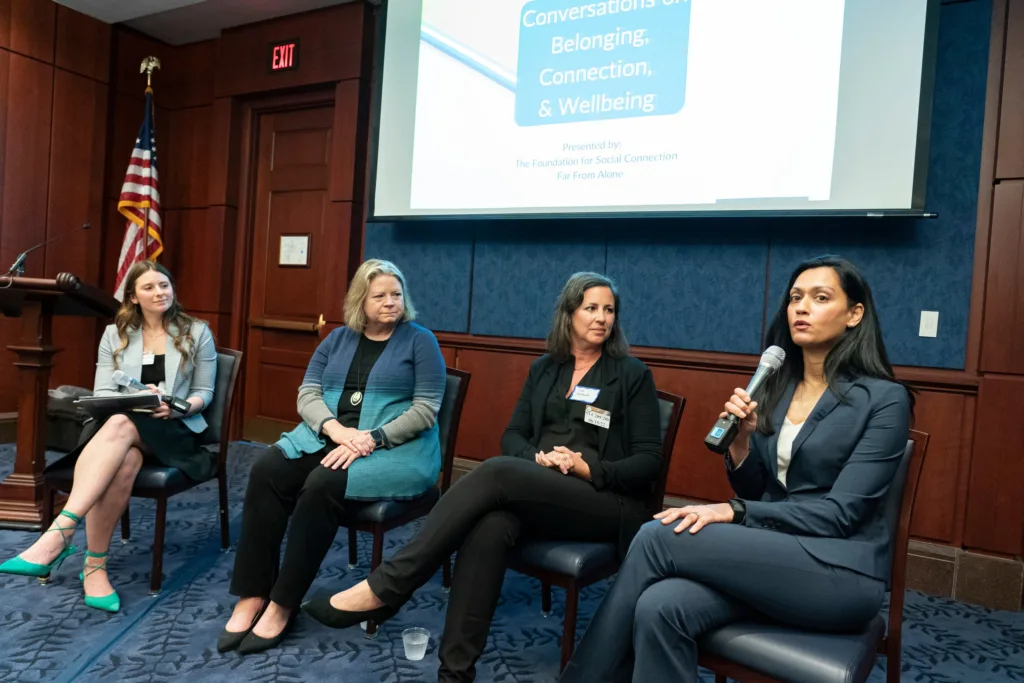
“My hope is that moving forward, we continue our collaboration and know that it isn’t necessary for me to have the solution for everything, but it is necessary for us to partner with the right folks across the ecosystem,”
– Dr. Mona Siddiqui, Senior Vice President of Enterprise Clinical Strategy and Quality, Humana
Lastly, Jillian Racoosin, Deputy Executive Director of the Foundation for Social Connection, moderated a panel with Emily Allen, Interim President of The AARP Foundation; Dr. Carla Perissinotto, Professor of Medicine at UCSF; and Dr. Mona Siddiqui, Senior Vice President of Enterprise Clinical Strategy and Quality at Humana. The panelists offered valuable insight into how we can rise to the challenge of designing creative solutions to build meaningful connections. In talking about measuring social isolation and evaluating interventions, Emily reminded the audience that we must prioritize the advancement of research for more innovative and effective solutions. Additionally, we can emulate Dr. Perissinotto’s efforts to bring medical professionals’ attention to social isolation and loneliness by considering what other stakeholders we can involve in this work. Lastly, as Dr. Siddiqui addressed, we can continue to collaborate with each other and share our knowledge to provide a holistic set of solutions to end social isolation and loneliness.
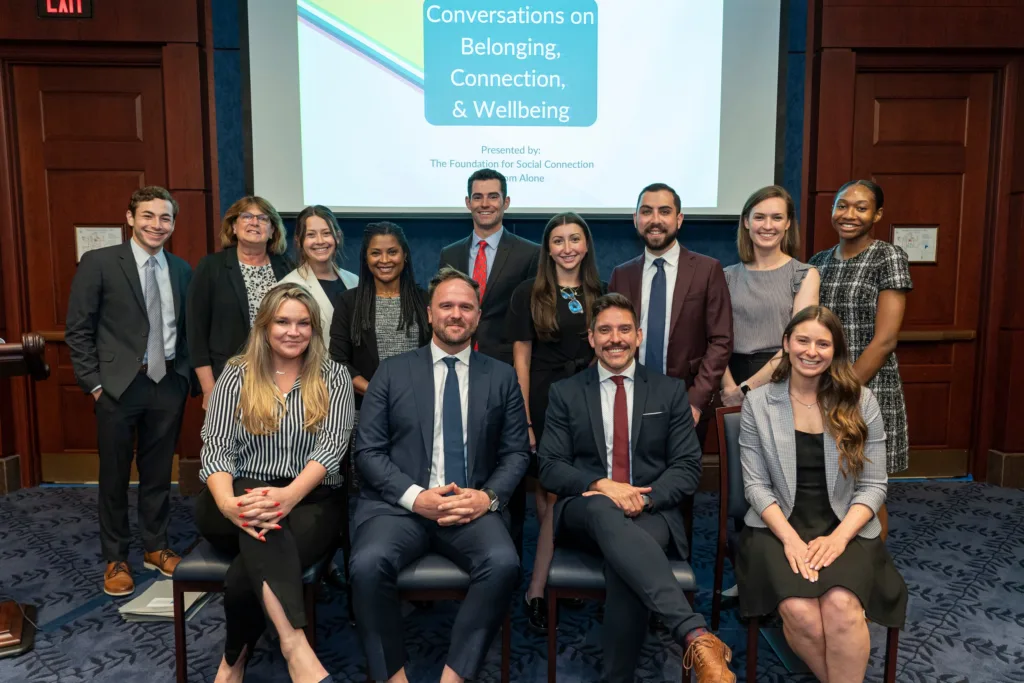
On behalf of the Foundation for Social Connection, we thank you for engaging in this important conversation and look forward to seeing what creative approaches you take to building meaningful social connection in your own communities.
If you would like to read more about the creative solutions our speakers (and attendees!) raised during the event, please visit The Foundation for Social Connection’s website here.
